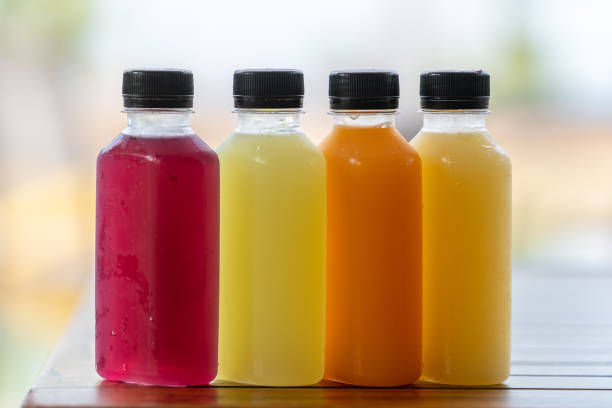Consuming the recommended daily amount of vegetables and fruits can aid people in reducing their risk lower their risk of many major causes of death and illness. These include cardiovascular diseases as well as type 2 diabetes. certain cancers and overweight.
In accordance with the Centers for Disease Control and Prevention (CDC)Trusted Source, The daily recommended amount of fruit should be:
- Females of adult age: At least 1 and one-half cups of fruit every day
- Males over the age of 18: At least 2 cups of fruit a day
The United States Department of Agriculture (USDA) states that, at minimum, half of the recommended daily amount of fruits should come from whole fruits. This means that one is not able to receive their daily recommended amount solely from juices of fruit.
The CDC Trusted Source reports that only 12 percent of adults across the United States consume the recommended amount of fruits.
When compared to the whole fruit, Juices of fruit tend to have less fiber and higher energy and sugar.
This is the reason why one should be careful about the amount of juice from fruit they drink every day.
A small amount of research from the trusted source suggests that high amounts of fruit juice might not be a good choice for kids since they contain high levels of sugar.
The American Academy of Pediatrics suggests the following daily maximum amounts of fruit juices for children:
- Children ranging from 1-3 years old:No more than 4 1 ounces of juice for fruit each day
- Children aged between 4-6 years old4-6 1 oz fruit juice daily
- Children 7 years and older:8 oz of fruit juice daily
Adults should restrict themselves to not more than 8oz of juice from fruit per day.
With all the popular diets and nutritional sources, it is difficult to distinguish fact from fiction, especially with regard to sugar. It is nevertheless important to remember that the body’s metabolism processes fruit sugar in a different manner in comparison to processed sugars or added sugars.
Every fruit has natural sugar. Sweet fruitstrusted sources, such as mangoes and watermelons, contain significant amounts of sugar. In general, however, fruit tends to be lower in sugar than sweetened food items.
Nearly everyone, even those suffering from diabetes, may be benefited by eating more fruit from the Trusted Source. This is because of the combination of href=”https://www.medicalnewstoday.com/articles/195878.php” title=”What are vitamins as well as how they work?> “>vitamins minerals, vitamins as well as phytochemicals, fiber and the water that it provides.
“What do vitamins mean as well as how they function?> “Fruits contain two kinds of sugar sugars: glucose and fructose. The proportions of both are different, but the majority of fruits contain approximately half fructose and half glucose. The sugar glucose raises blood sugar levels. Therefore, the body has to use insulin to break it down. Fructose does not raise blood sugar. Instead, it is broken down by the liver. into smaller pieces.
In the following sections, we will look at how the sugars in fruit compare to other sugars, the dangers that come with the consumption of sugar, and the advantages of eating fruits.



